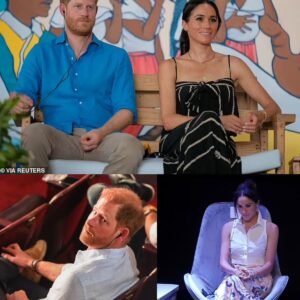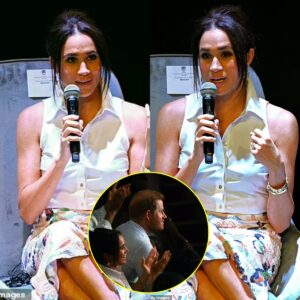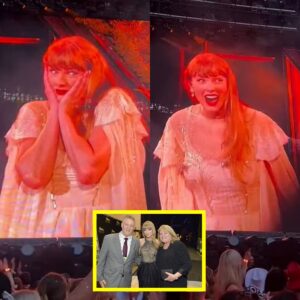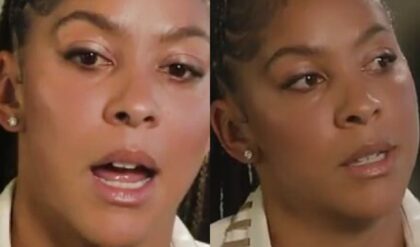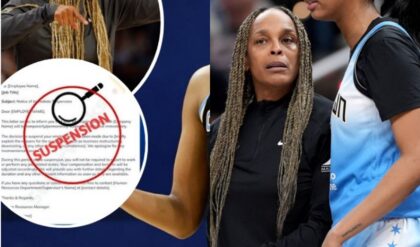“Why Is the World So Split on Meghan Markle? Unraveling the Love-Hate Divide”

The global reaction to Meghan Markle, Duchess of Sussex, has been strikingly polarized. The former actress and member of the British royal family has become one of the most controversial figures in contemporary media, eliciting strong emotions ranging from adulation to disdain. But what fuels this intense division? To understand the reasons behind the world’s split opinion on Meghan Markle, it’s essential to explore several factors: her royal role, media portrayal, public perception, and her and Prince Harry’s decisions since stepping back from royal duties.
Meghan Markle’s entry into the British royal family in 2018 brought a fresh perspective to the centuries-old institution. As a mixed-race American with a career in Hollywood, Meghan represented a departure from traditional royal norms. Her marriage to Prince Harry, the younger son of Prince Charles, was met with both enthusiasm and skepticism.
For many, Meghan’s presence was a breath of fresh air, symbolizing progress and modernity within the monarchy. Her philanthropic work, advocacy for gender equality, and outspoken nature resonated with a global audience eager for change. However, this newness also made her a target for criticism.
The British tabloid press, known for its aggressive tactics, quickly became a significant source of controversy. Meghan and Harry’s relationship with the media was fraught with tension, exacerbated by the relentless scrutiny and invasive reporting. The press’s negative portrayal of Meghan often focused on her personal life, fashion choices, and even her interactions with her family, which fueled public criticism.
The media’s influence on public opinion cannot be overstated. Coverage of Meghan Markle has ranged from sympathetic to downright hostile. Tabloids have depicted her as a diva or troublemaker, contrasting sharply with the more favorable portrayals seen in other outlets. This dichotomy has polarized audiences, with some rallying to her defense and others buying into the negative narratives.

For instance, reports on Meghan’s alleged conflicts with the royal family or her purportedly extravagant lifestyle were often sensationalized. High-profile interviews and royal documentaries that Meghan and Harry participated in, such as their 2021 interview with Oprah Winfrey, further polarized opinions. In these interviews, Meghan spoke about her struggles with mental health and her experiences with racism, which elicited both empathy and skepticism from the public.
Meghan’s decision to step back from royal duties in early 2020 and relocate to North America was a pivotal moment in the ongoing debate. Her and Harry’s choice to pursue financial independence and a more private life was seen by some as a courageous move toward personal happiness. To their supporters, it represented a break from stifling royal expectations and an effort to control their narrative.
Conversely, critics viewed their departure as a betrayal of royal duties and an act of privilege. The decision to live in a multi-million-dollar home in California while advocating for social causes was perceived by some as hypocritical. This perception was further fueled by Meghan and Harry’s public speaking engagements and lucrative deals with streaming services, which some critics argue contradict the values of selfless public service that the royal family embodies.
It is also essential to consider the role of race and gender in the public’s response to Meghan Markle. As a biracial woman entering a predominantly white institution, Meghan faced unique challenges that her predecessors did not. Racism, both overt and subtle, has been a recurring theme in the coverage of her life.
Instances of racially charged criticism and the royal family’s alleged indifference to these issues have highlighted broader societal biases. Meghan’s advocacy for racial justice and her candid discussions about her experiences with racism have garnered both support and backlash. The intersection of race, gender, and class in Meghan’s public life has made her a lightning rod for various forms of prejudice and resistance to change.

On the other hand, detractors see Meghan as emblematic of celebrity culture’s excesses and a source of unnecessary drama within the royal family. They argue that her actions and statements have been self-serving and have overshadowed the monarchy’s traditional values.
This divide is also evident in how people consume media. Those who follow Meghan’s story through sympathetic outlets may have a more favorable view of her, while those exposed to negative portrayals might be more critical. The polarized nature of media coverage has amplified these divergent views, making it difficult to reach a consensus.
The intense polarization surrounding Meghan Markle stems from a complex interplay of media dynamics, personal choices, societal attitudes, and institutional expectations. Her role as a modernizing force within the British monarchy, combined with the media’s often contradictory portrayals, has created a contentious public narrative. The division between loving and hating Meghan is not just about her actions but reflects broader discussions about race, privilege, and the evolving nature of public figures. As her story continues to unfold, it will likely remain a topic of significant debate, reflecting deeper societal divides and the changing landscape of public life.
News
‘He’s an angry boy’: As Prince Harry’s faux-royal tour ends, why despite his jollity and cheeky dancing, one pal claims the Duke’s American dream ‘hasn’t turned out the way he wanted’… and shouldn’t expect an invitation when Wills takes the throne
‘He’s an angry boy’: As Prince Harry’s faux-royal tour ends, why despite his jollity and cheeky dancing, one pal claims the Duke’s American dream ‘hasn’t turned out the way he wanted’… and shouldn’t expect an invitation when Wills takes the…
“Meghan Markle Stuns in Colombia: Princess of Sussex Wows Crowd with Fluent Spanish While Prince Harry Struggles with Earpiece”
“Meghan Markle Stuns in Colombia: Princess of Sussex Wows Crowd with Fluent Spanish While Prince Harry Struggles with Earpiece” Meghan Markle showed off her ability to speak Spanish as she addressed the audience during her ‘Afro women and power’ talk in…
“It’s what I went through…”: Rob Lowe praised Taylor Swift’s fame, saying it is far more intense than what he experienced during his ’80s heyday
“It’s what I went through…”: Rob Lowe praised Taylor Swift’s fame, saying it is far more intense than what he experienced during his ’80s heyday Rob Lowe has some perspective on what Taylor Swift is going through right now. In the 1980s he…
How Taylor Swift and Travis Kelce make their long-distance relationship work – as NFL star’s secret to dating success is revealed
How Taylor Swift and Travis Kelce make their long-distance relationship work – as NFL star’s secret to dating success is revealed As Travis Kelce and Taylor Swift enter year No 2 of their relationship, finding consistent ways to make their long-distance romance survive is…
Taylor Swift shows her love for Travis Kelce at London Eras show
Taylor Swift shows her love for Travis Kelce at London Eras show Taylor Swift subtly showed her love for boyfriend, Travis Kelce, while taking the stage for her first of five performances in London at Wembley Stadium on Thursday. As she returned to…
EXCLUSIVE: Taylor Swift tearfully reveals her parents are in attendance for her second Wembley show as she performs London Boy for the FIRST TIME on her Eras Tour after a three-minute standing ovation from fans..
EXCLUSIVE: Taylor Swift tearfully reveals her parents are in attendance for her second Wembley show as she performs London Boy for the FIRST TIME on her Eras Tour after a three-minute standing ovation from fans.. Taylor Swift tearfully revealed her parents…
End of content
No more pages to load
